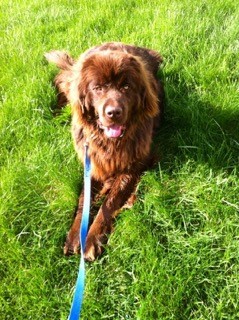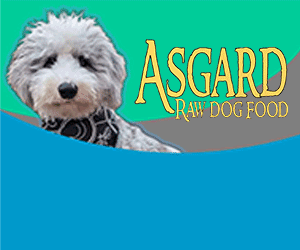Your veterinarian has diagnosed a torn ligament and has prescribed medications for pain, inflammation and muscle spasm. They make a referral to an orthopedic specialist. But what if you don’t want to do surgery for whatever reason? Is there a way to heal these injuries as safely and completely as possible without surgery, non invasively, and with minimal medications? In my experience that answer can be yes!
When I see animals in this condition, I am primarily trying to do two things. The first is to get the injured area to heal as efficiently as possible. How we do that is to reduce or remove any and all neuro-muscular imbalances between the brain, the body, and the injury. For the remainder of this article we will use the knee as our example. When the body gets traumatized it spasms muscles and creates inflammation around the area in order to stabilize. That is great, at first, but then due to the pain and the animal holding the leg up, or “tip-toeing”, that muscle spasm can tighten, and that inflammation can worsen; which slows down progress and can even create complications. So a main priority is to reduce muscle spasm. The middle of the thigh can be a bad area. The muscles can get so tight that they inhibit range of motion and create pain. The nervous system interprets this as a problem, and guess what, spasms and inflames even more. The top or side of the knee can also be sore. So by stimulating the nervous system to “move along” in the healing process we can naturally release muscle spasms, increase range of motion, restore nerve communication and reduce pain.
Another goal of our work is to find and minimize the areas of compensation in the body. The opposite leg, often times bearing the weight of the bad leg is under way more stress than usual and that is why people hear “well the other leg is going to go eventually”. That doesn’t happen very often in my practice. Why? Because we are working on it from day one to minimize the extra stressors. The pelvis, lower back, and even shoulders/neck can also be a part of this compensation process depending on how bad the animal is limping and for how long. So by bringing these areas back into balance we heal.
Kelsea, an 8 year old Husky was weight bearing in 4.5 weeks, and back to normal in 6 months with minimal medications and no surgery. Buster, an 8 year old lab was improved after just one visit and now is better than ever when seen at our 8 week maintenance visits.
What if you already had surgery, or what if, in your companion’s case surgery is a must? In my experience, doing pre and post surgical visits has shown to get the animals up and about sooner, with less complications. Hudson a 2 year old Newfoundland came to me post surgical. Our goals are: 1. prevent the other leg from “going”, and 2. make sure Hudson’s body is healing optimally after the procedure. He was walking much better after our first visit, and now, just 3 visits in he is back to a normal life with no restrictions.
By reducing the spasm, interference, and inflammation to and from the injured area, and removing the compensation in the rest of the body caused by the injury, your companion animal can get better! Remember, removing the blocks to healing restores health.
Please note, I am not saying you should not consider surgery. In SOME cases, it is needed. I am just presenting another option that has been successful many, many times in my practice over the past 15 years.
Dr. Savko is not a veterinarian nor does he practice veterinary medicine. He is an animal healer. He has his doctorate in chiropractic, he is certified in the VOM healing technologies, he is Reiki attuned, and well versed in muscle work and acupressure concepts. He works in house with 4 local veterinary hospitals on a weekly basis, and receives referrals from many other veterinarians all across the Pittsburgh area and beyond. For more information www.facebook.com/animalhealingnow, www.drchirovet.com, 724-261-7915.



